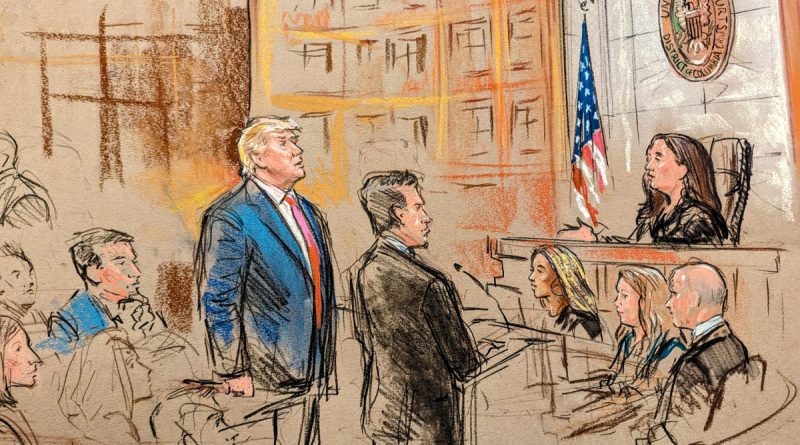Appeals court questioned Trump’s immunity from criminal prosecution
An appeals court on Tuesday cast doubt on Donald Trump’s claims that he is immune from criminal prosecution for trying to change the outcome of the 2020 election.
Trump personally watched as his legal team tried to convince three justices that former presidents should not be prosecuted for actions they committed while in office. Trump’s trial on federal charges of trying to change the election results is set for March.
The justices were skeptical of the defense’s arguments.
“Are you arguing that the president can sell pardons, sell military secrets, order SEAL Team Six to kill a political rival?” – Judge Florence Pan asked John Sauer’s defense attorney.
Sauer said the former president could only be charged with such behavior if he was first impeached in the House and convicted in the Senate.
After the hearing, Trump said he was a victim of political persecution and warned of “chaos in the country” if the case is allowed to proceed.
“It’s going to open Pandora’s box,” he said at a hotel he formerly owned near the trial. He did not respond to a question about whether he would call on his supporters to refrain from violence.
Trump made a more specific threat before the hearing, saying he could prosecute Biden if he wins the Nov. 5 presidential election.
“If I don’t get immunity, neither will corrupt Joe Biden,” Trump said in a video posted on social media. – Joe will be an easy target for prosecution.”
Prosecutors argue that Trump acted as a candidate, not as president, when he pressured officials to change the election results and urged his supporters to march to the Capitol on Jan. 6, 2021, to pressure Congress not to approve Biden’s victory.
Trump, who lost to Biden in the 2020 election, has been well ahead of his rivals in the race for the Republican presidential nomination since his first criminal indictment last March.
The Republican state-level election marathon is set to begin next Monday in Iowa, and Trump is expected to easily win the first round.
The Justice Department has long taken the position that presidents cannot be prosecuted for performing their official duties while in office. Trump, the first former president to be criminally prosecuted, faces 91 criminal charges in four separate cases.
Sauer, Trump’s lawyer, told judges on the U.S. Court of Appeals for the District of Columbia Circuit that allowing the prosecutions would lead to a cycle of mutual vengeance after every election.
He said presidents must first be impeached and removed from office by Congress before they can be prosecuted. Trump has been impeached twice, but the Senate failed to convict him both times.
The case against Trump reflects the unprecedented nature of his efforts to change the outcome of the 2020 election, and granting him immunity for those actions would give future presidents a license to commit crimes, Justice Department lawyer James Pearce told the panel.
“The president has a unique constitutional role, but he is not above the law,” he said.
Both the legal outcome and the timing of the appeals court ruling will play a key role in determining whether Trump faces trial before the November election.
Prosecutor Jack Smith has accused Trump of conspiring to prevent votes from being counted and validating his defeat in 2020, which culminated in the Jan. 6 attack. Trump has said he will plead not guilty to charges including fraud on the government and obstruction of Congress.
The case is one of four criminal trials Trump faces this year as he campaigns to return to the White House.
You may be interested: Trump is blocked from the GOP primary ballot in two states
